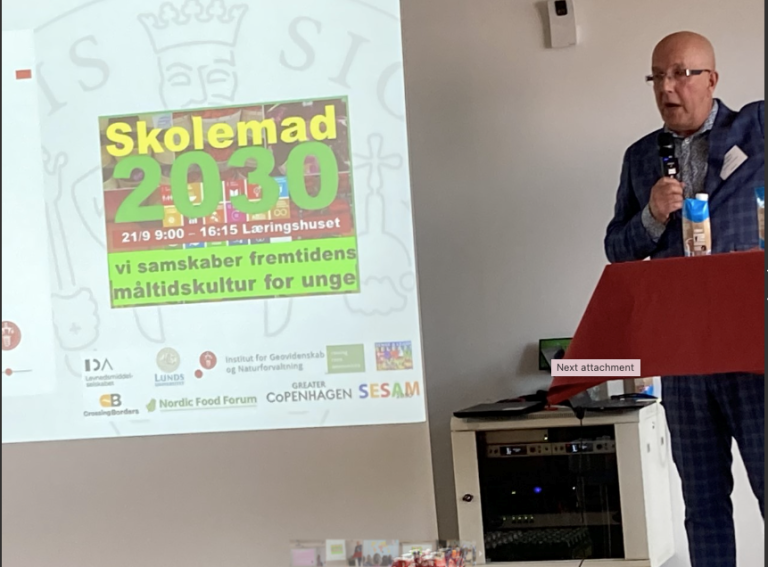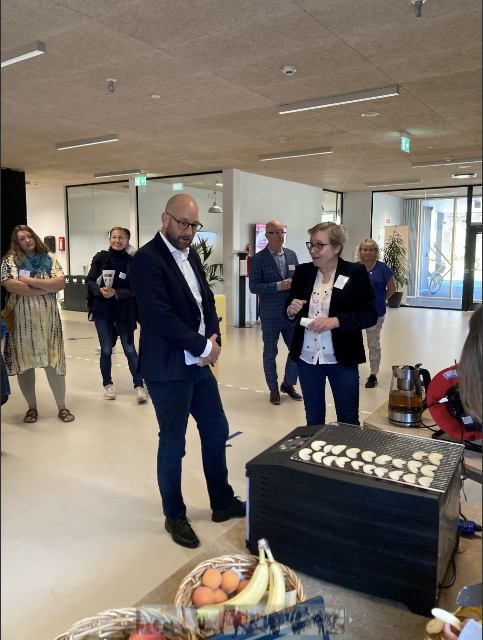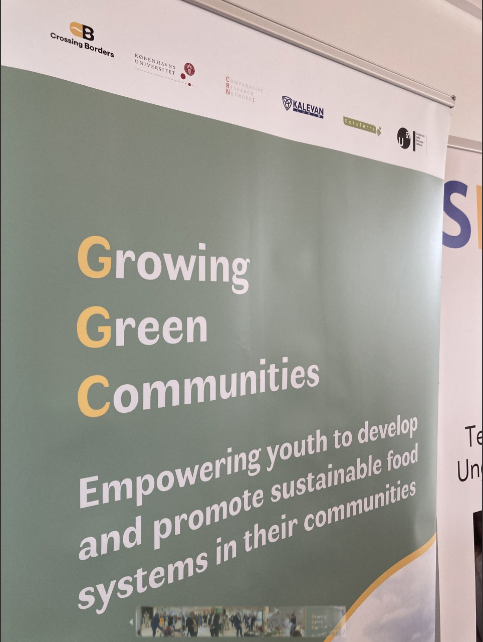When it comes to school food security, what can Denmark learn from neighbouring countries? This was the main topic of the Skolemad (School Meals) 2030 meeting agenda, that took place on September 24th, 2022.
In recent years, Danish school teachers, university professors, researchers and some policy makers have been working hard to present the benefits of providing healthy, adequate, and sustainable school meals on a national level in Denmark. Despite Denmark having a higher standard of social welfare, until 2023 public Danish Schools do not offer school meal. At the same time, science has shown the “Social Ecological” benefits of providing natural and sustainable meals at the school level. Students who have access to quality school meals will be well nourished and with enough energy to focus on their studies and improve their academic performance and further professional contributions to society. Subsequently, encouraging healthy and sustainable eating practices early in life improve students’ health & well-being. Also, this practice can help prevent chronic disease later in life and boost young people’s immune systems to fight possible contamination by communicable diseases. The benefits of investing in school meals will be positively reflected in the short and long term in the social, economic and environmental aspects of the country’s sustainable development.
The “Skolemad” event in Denmark invited experts in food systems, local government and school feeding experts from other Scandinavian countries such as Sweden and Norway to share their best school feeding practices with the Danish public, including Mr. Rasmus Prehn, Minister of Food, Agriculture, and Fisheries in Denmark.
Growing Green Communities (GGC) project partners Crossing Borders represented by its director Garba Diallo and the University of Copenhagen represented by the Food System’s Professor Bent E. Mikkelsen were present during this innovative “Skolemad” panel to collaborate and empower schools to achieve the green transition through natural, healthy, and sustainable school meals.
The GGC project involves students participating in hands-on “Green Activities” inside and outside the classroom. The mapping of the food landscape around the schools and the “Youth School Veggies Gardens” are examples of the activities of the GGC project to reconnect students with natural food and raise awareness about the importance of adequate food at school and beyond. GGC partners are committed to working on the development of educational and recreational activities to involve young students in this green food transition, as they are the main target audience and beneficiaries, although the whole society benefits from this initiative.
Blog author: Mesiara, Giselle GGC Project Coordinator
References:
Andersen, R. et al. (2014) “Dietary effects of introducing school meals based on the new nordic diet – a randomized controlled trial in Danish children. The Opus School Meal Study,” British Journal of Nutrition, 111(11), pp. 1967–1976. Available at: https://doi.org/10.1017/s0007114514000634.
Merson, M.H. et al. (2020) Global Health: Diseases, Programs, Systems, and Policies. Burlington, MA: Jones & Bartlett Learning.





